
History of Language Learning in the UK
Since humans first started to communicate with each other, language learning has been part of our history. But how did we get to the point we are at today with thousands of different languages being learnt every day across the globe and the UK? We have taken a look at the history of language learning in the UK to give you a brief insight into the development of techniques and the spread of language learning.
History of Language Learning in the UK
Ancient Times Language Learning
The first major language studying can be traced back to the Romans and Greeks. During the advance of the Roman Empire throughout Europe, Greek was a popular study focus for the Romans. Taught by tutors and slaves, this is considered by many to be the first formal language training. The Romans learning of Greek and other local languages were instrumental in the development of Latin which then spread across the Roman Empire.
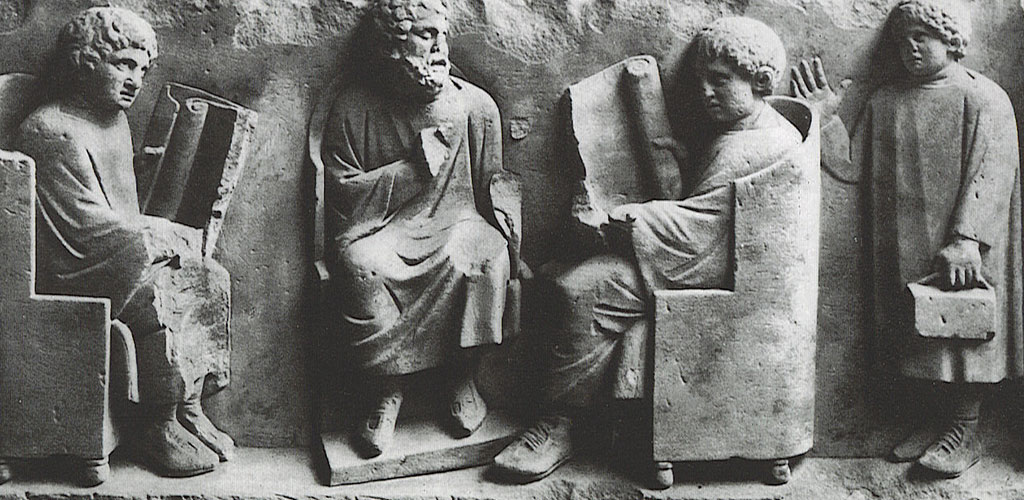
The oldest widely spoken language in the UK is considered to be Celtic. While not a set language per-se, Celtic is an amalgamation of multiple languages including Welsh, Irish, Gaelic and Breton. This formed the basis for what we now refer to as English.
History of Language Learning in Medieval Times
Latin became the main shared language across Europe due to the Christian faith. Priests and noblemen were schooled in Latin while local dialects remained spoken by general populations.
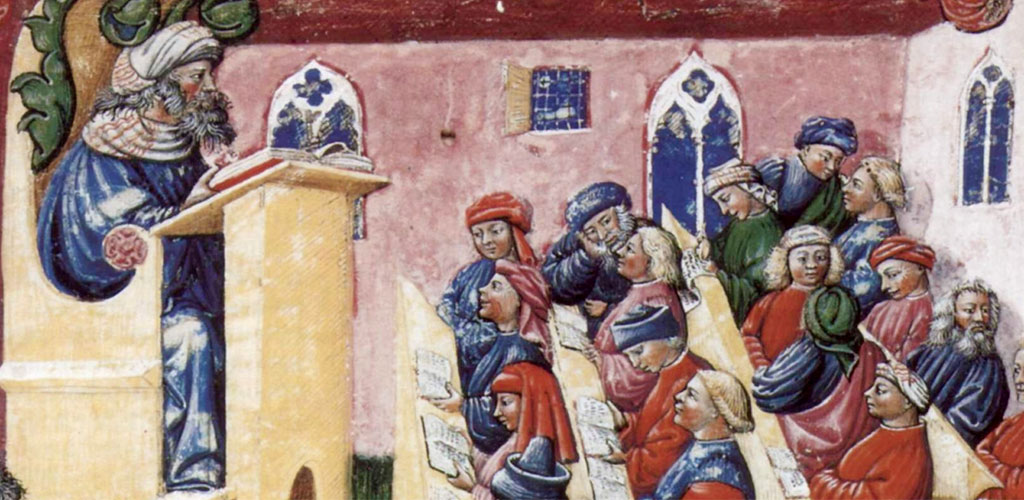
Languages such as English however evolved heavily over this period due to multiple invaders and influences. French, German and Nordic languages all had their own impact on the language with words being integrated into local dialect. These dialects combined with Latin and Celtic to form what we now know as English. This integration of other languages into English continues today with new words being absorbed and making their way into common speech regularly.
French became one of the most popular languages to learn for and noblemen in the UK from 1066 onwards due to the Norman invasion. This began the inclusion of other European language words and phrases into what we now consider as English.
16th & 17th Century Language Learning

During the 16th and 17th centuries the popularity of Dutch as a language to learn in the UK increased. The popularity of Dutch during this period can be linked to the new trade deals and routes with the Netherlands. It even saw the first Dutch language learning book for English speakers being published in 1606.
18th Century Teaching
The first formal education in languages in school environments came into regular occurrence in Europe in the 18th Century. Primarily focused on Latin, and only available to the upper-classes, these studies were primarily academic. Classes comprised of memorizing grammatical rules and applying said rules to texts. This type of study is referred to as the grammar-translation method.
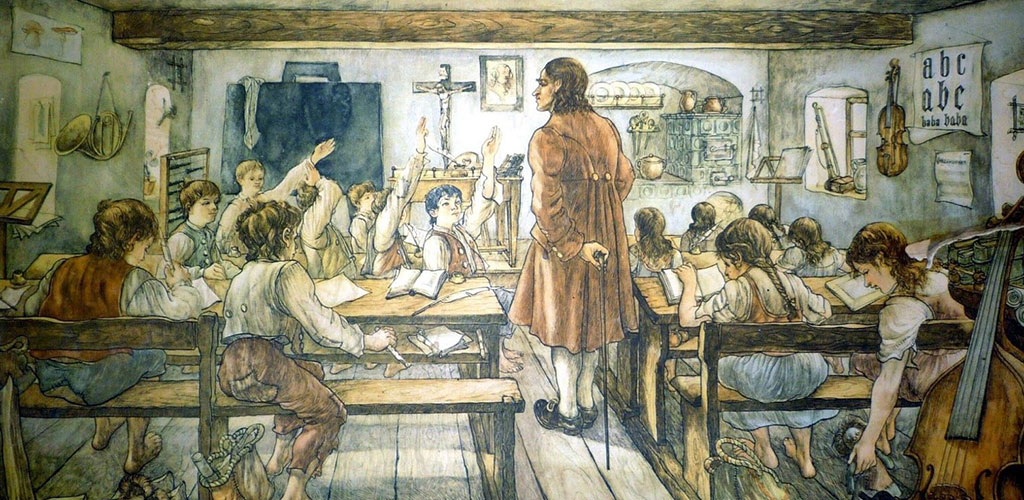
German also flourished as a studied language during this period. This was spurred on due to the British monarchy at that times German heritage. This saw French and German become the most popular languages to learn alongside Latin.
19th & 20th Centuries Teaching
With the advancement in world travel, language learning saw a large spike in the 19th and 20th Centuries. During this time language learning branched out to include languages from other parts of the world. A multitude of different learning techniques were developed during the 20th century, with the majority focusing on both written and oral techniques.
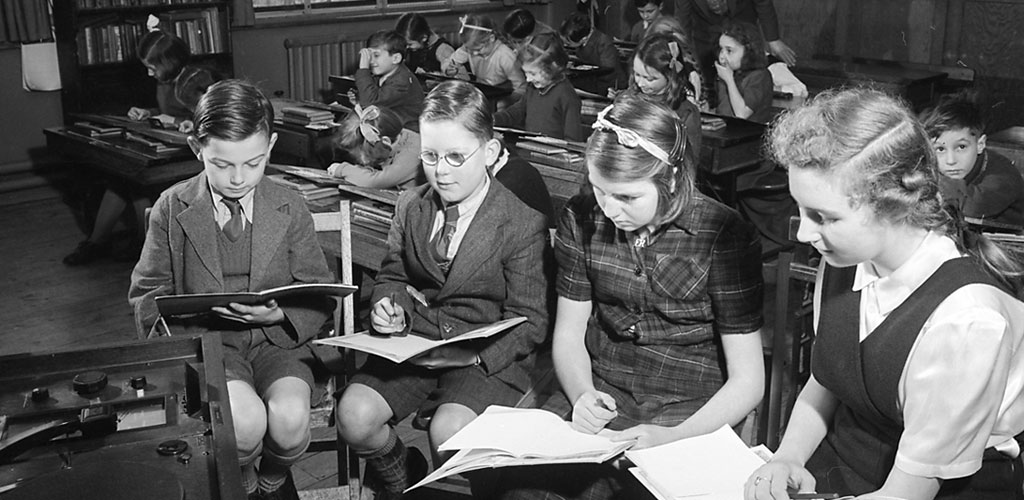
Teaching of languages in schools in the UK became commonplace during this period with French, German and Spanish being prominent. As the 20th Century drew to an end, the study of Latin dropped off considerably in schools and other teaching environments.
Languages from parts of the world which were previously less popular saw a surge in students. Asian and Middle Eastern languages also started to become more commonly taught. This was due to the ability for people to relocate around the globe. In turn this saw different languages become more integrated in other societies.
21st Century Training
With the dawn of new technology and interconnectivity around the world, the 21st Century has seen major advancements in language learning.

From traditional classroom based teaching to online and app-based learning, the accessibility of courses is unprecedented. This combined with the freedom of travel means that learning a language is much more inclusive and readily available to more people than ever before.
Join the history of language learning by signing up with Cactus:
Have you read about the History of Language Learning in the UK and want to learn a new language or improve your language skills? Cactus offers a variety of great group language courses. Including online and in the UK, across the world and private classes. Learning a language has never been easier, and is a great way to uncover a different culture.
Are you looking to book a language course?
Please check our How to Book page for more information on the simple secure and easy online booking process.
For information on any of our classes, please call us on +44 (0) 1273 830 960 or contact us. Our multilingual team will be happy to answer any questions you may have.

 French
French German
German Italian
Italian Spanish
Spanish Arabic
Arabic Cantonese
Cantonese Czech
Czech Croatian
Croatian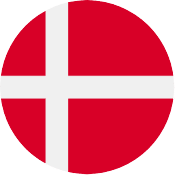 Danish
Danish Dutch
Dutch English
English Greek
Greek Hebrew
Hebrew Hindi
Hindi Japanese
Japanese Korean
Korean Norwegian
Norwegian Polish
Polish Portuguese
Portuguese Russian
Russian Swedish
Swedish Thai
Thai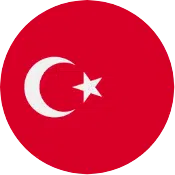 Turkish
Turkish Ukrainian
Ukrainian